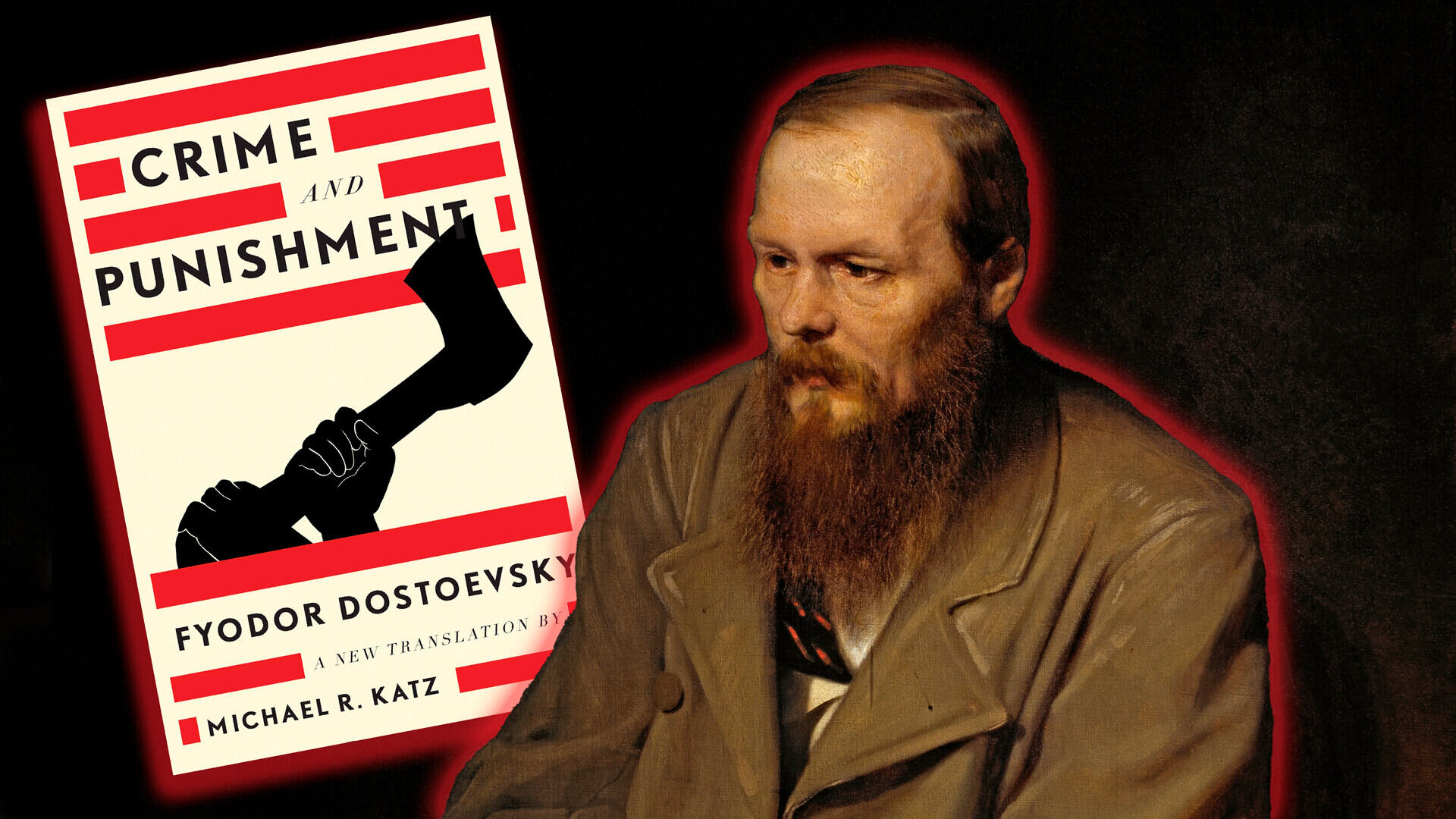
Crime and punishment have been integral aspects of human society since ancient times. The interplay between criminal behavior and the consequences it incurs is a subject of enduring fascination and concern. As we delve into the realm of crime and punishment, we uncover a complex web of social, psychological, and legal dynamics that shape the fabric of our communities. From historical perspectives to modern-day implications, this article aims to illuminate 11 compelling facts about crime and punishment. By exploring these facts, we can gain a deeper understanding of the multifaceted nature of criminal behavior, the mechanisms of justice, and the impact of punitive measures on individuals and society as a whole. Join us on this journey as we unravel the intricate tapestry of crime and punishment, shedding light on its profound implications for the human experience.
Key Takeaways:
- Crime and Punishment” by Fyodor Dostoevsky is a gripping novel that delves into the psychological impact of crime, exploring themes of morality, guilt, and redemption in a thought-provoking narrative.
- The novel’s enduring relevance and timeless exploration of the human condition have solidified its place as a seminal work in the realm of psychological fiction, captivating generations of readers with its compelling narrative and thought-provoking themes.
Crime and Punishment is a novel by Fyodor Dostoevsky.
Widely regarded as one of the greatest psychological thrillers in literature, "Crime and Punishment" delves into the mind of its protagonist, Raskolnikov, a young ex-student in St. Petersburg who formulates and executes a plan to kill an unscrupulous pawnbroker for her money. The novel explores themes of morality, guilt, and the consequences of actions in a gripping and thought-provoking narrative.
The novel was first published in 1866.
Fyodor Dostoevsky's "Crime and Punishment" made its debut in 1866, captivating readers with its intense exploration of the human psyche and its enduring relevance to societal and ethical dilemmas.
Raskolnikov, the protagonist, is a complex and conflicted character.
Raskolnikov's internal struggle and moral ambiguity captivate readers as they navigate the complexities of his mind and the choices he makes throughout the novel. His internal turmoil and philosophical ponderings add depth and richness to the narrative.
The story is set in St. Petersburg, Russia.
The evocative and atmospheric setting of St. Petersburg serves as a backdrop for the unfolding drama, immersing readers in the societal and cultural milieu of 19th-century Russia.
"Crime and Punishment" explores the psychological impact of crime.
Dostoevsky's masterful depiction of the psychological aftermath of Raskolnikov's crime offers profound insights into the human condition, morality, and the burden of guilt.
The novel delves into themes of redemption and atonement.
As the story unfolds, themes of redemption and atonement emerge, inviting readers to contemplate the possibility of spiritual and moral renewal in the face of grave transgressions.
Dostoevsky's writing style is characterized by its psychological depth.
The author's profound exploration of human psychology and emotion is a defining feature of "Crime and Punishment," drawing readers into the inner workings of the characters' minds with unparalleled insight and empathy.
"Crime and Punishment" has been adapted into numerous films, TV series, and theatrical productions.
The enduring appeal of the novel has led to various adaptations across different mediums, each offering a unique interpretation of Dostoevsky's timeless work.
The novel has had a significant influence on literature and popular culture.
Dostoevsky's masterpiece has left an indelible mark on literature and continues to inspire countless authors, filmmakers, and artists, shaping the landscape of storytelling and artistic expression.
"Crime and Punishment" remains a timeless classic that continues to resonate with readers worldwide.
With its enduring relevance and timeless exploration of the human condition, "Crime and Punishment" maintains its status as a literary masterpiece that continues to captivate and provoke contemplation.
Fyodor Dostoevsky's "Crime and Punishment" is a seminal work in the realm of psychological fiction.
The novel's profound examination of human morality, guilt, and redemption has solidified its place as a seminal work in the realm of psychological fiction, captivating generations of readers with its compelling narrative and thought-provoking themes.
Conclusion
In conclusion, crime and punishment are complex societal issues that have far-reaching impacts on individuals and communities. Understanding the various facets of crime, including its causes, effects, and the mechanisms of punishment, is crucial for fostering a safer and more just society. By delving into these 11 facts about crime and punishment, we gain valuable insights into the multifaceted nature of criminal behavior, the diverse approaches to punishment, and the ongoing efforts to reform and improve the criminal justice system. Ultimately, addressing these issues requires a comprehensive and nuanced approach that considers the underlying socio-economic factors, rehabilitation strategies, and the protection of individual rights. As we continue to explore and address these challenges, it is essential to promote empathy, understanding, and evidence-based solutions to create a more equitable and secure world for all.
FAQs
What are the main factors contributing to criminal behavior?Understanding the root causes of criminal behavior is complex, with factors such as socio-economic disparities, lack of access to education and employment opportunities, substance abuse, and mental health issues playing significant roles. Additionally, environmental influences, family dynamics, and peer associations can also contribute to criminal tendencies.
How does the criminal justice system aim to balance punishment and rehabilitation?The criminal justice system strives to achieve a delicate balance between punishment and rehabilitation by implementing various measures such as incarceration, probation, community service, and counseling programs. The overarching goal is to hold individuals accountable for their actions while also providing opportunities for personal growth, education, and reintegration into society to reduce recidivism rates.
Fyodor Dostoevsky's "Crime and Punishment" is a timeless classic that continues to captivate readers worldwide. If you're intrigued by the complexities of this novel and its author, consider exploring more captivating facts about Dostoevsky's life and works. For those fascinated by the psychological depths of crime and redemption, delving into the intriguing facts surrounding Margaret Atwood's "Alias Grace" might also pique your interest. Both works offer unique perspectives on the human psyche and the consequences of our actions, making them compelling reads for anyone interested in the intersection of literature and the criminal mind.
Was this page helpful?
Our commitment to delivering trustworthy and engaging content is at the heart of what we do. Each fact on our site is contributed by real users like you, bringing a wealth of diverse insights and information. To ensure the highest standards of accuracy and reliability, our dedicated editors meticulously review each submission. This process guarantees that the facts we share are not only fascinating but also credible. Trust in our commitment to quality and authenticity as you explore and learn with us.


